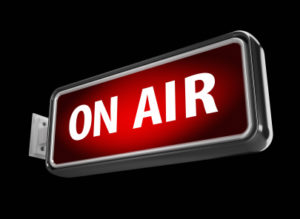4 Ways To Handle Distractions During A Media Interview
As a former producer for NBC News, I can’t tell you how many times I’ve had to beg a construction crew or advance team setting up an event to pause their work so my correspondent would have no distracting background noise in our live shot. Usually, the workers were kind enough to oblige, but these were smaller arenas, not the Democratic National Convention.
Which is why, as I was watching Andrea Mitchell broadcasting on MSNBC earlier this week from the convention hall in Charlotte amid workers pounding on the stage and multiple sound checks, I was reminded of a very important rule: It’s not always about avoiding the distractions, it’s about how you handle them.
As crews were finishing the stage set-up in the hall, the noise they created was incredibly disrupting, and it couldn’t be stopped for her broadcast. Ms. Mitchell wisely explained the noise briefly to the audience and then went on with her show.
As the setup continued with the audio engineers testing the sound system, she joked with Obama Senior Campaign Advisor Robert Gibbs about the playlist (which included Cheryl Lynn’s 1978 disco hit “Got To Be Real”). But she didn’t let the distractions take away from her interview, and neither should you. (2020 update: Video no longer available.)
When being interviewed, the setting may not always be perfect. You may be doing a “walk and talk” on a busy city street with a reporter. There may be loud yard work happening outside your office. Your kids could be running around the house, screaming in the background of your late-night radio or print interview. You could be on the convention hall floor amid work crews or cheering delegates. It can be chaotic and difficult to concentrate, but to keep your credibility with the audience, you have to maintain your confident, on-message tone at all times.

So how should you deal with these situations when you just can’t get to a more peaceful location? Four suggestions:
- If the disruption is minimal, you may simply choose to ignore it.
- Briefly explain the interruption and move on.
- You may do like Ms. Mitchell and crack a brief joke. It works, as long as it’s short and you manage to move on quickly.
- If the background noise is really bad, you may tell the reporter, “I’m sorry, I can barely hear you over this noise, but I think you were asking about this…” and then go into one of your messages. A warning about this technique—it only works in non-confrontational situations. If the questioning is getting tough and you say you can’t hear the reporter, you may look like you’re avoiding answering challenging questions.
The important thing to remember is this: You don’t lose audience confidence because of background distractions in interviews. The audience doesn’t care. The audience cares about how you deal with them.
If you like my blog, please stay in touch on Facebook at www.Facebook.com/Throughliners and on Twitter at @MrMediaTraining. Thanks for reading!


